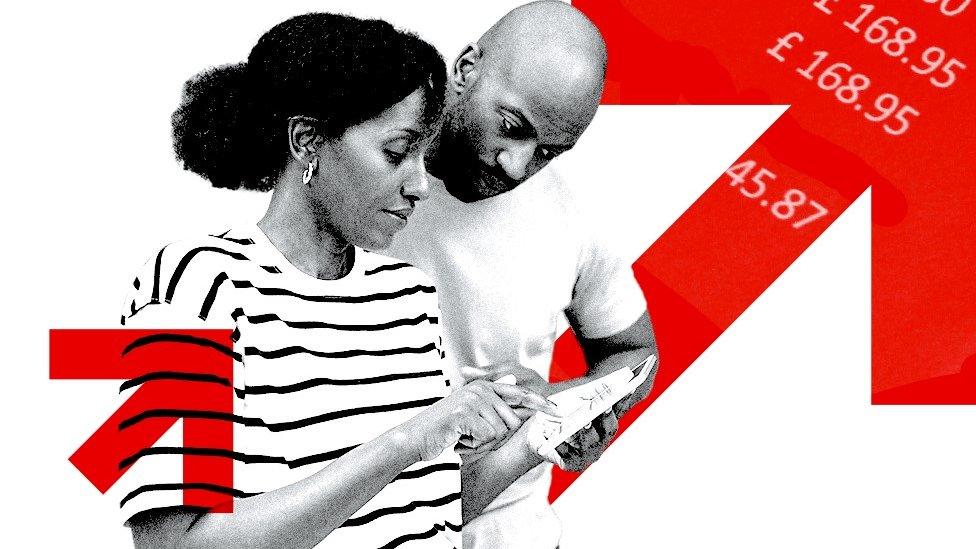How to make your garden grow on a budget
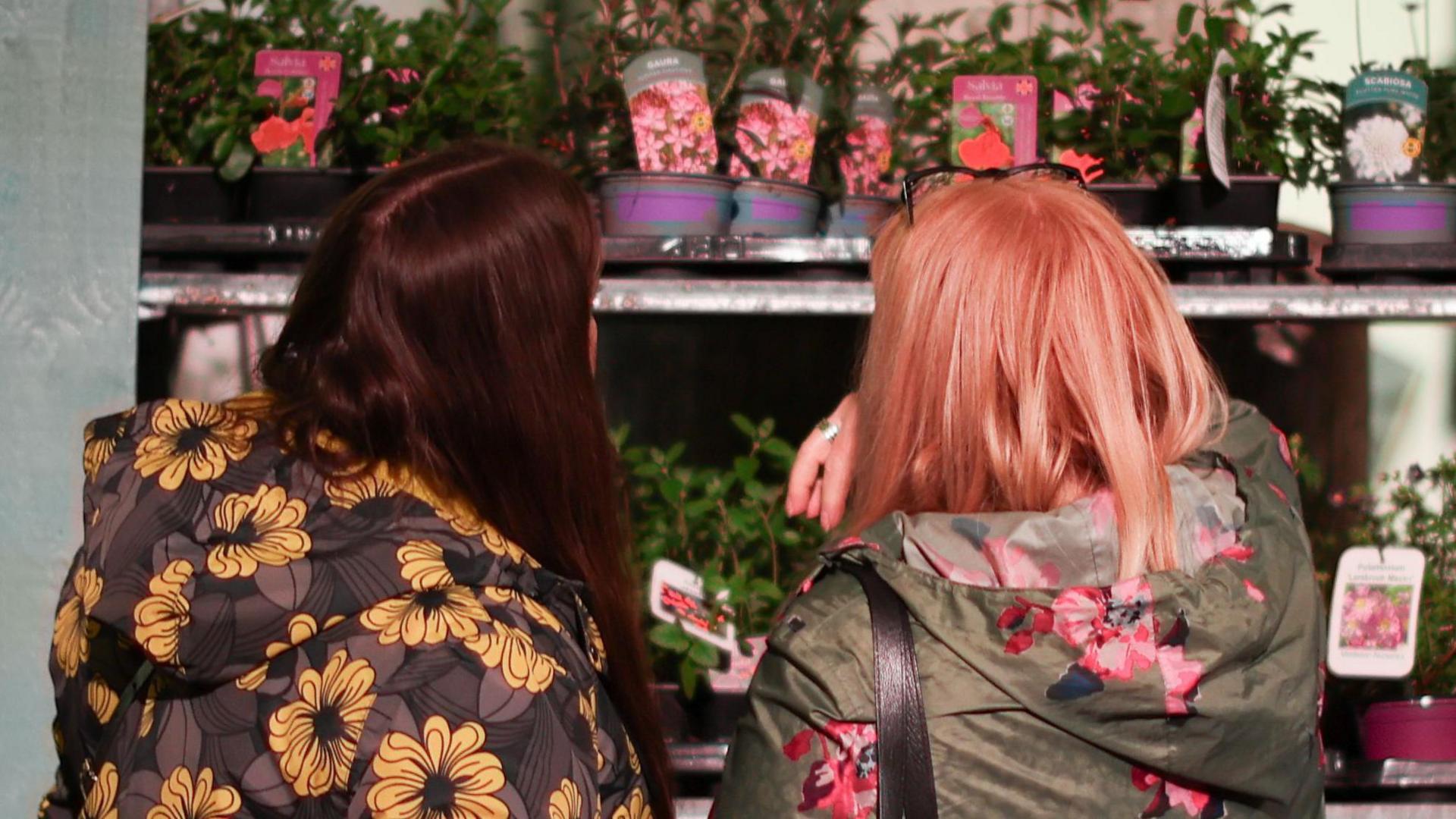
About £8bn was spent on garden products in the UK in 2023
- Published
With summer on the horizon, lots of people will be getting in the mood for sprucing up their outdoor space, however big or small.
According to the Horticultural Trade Association the average household spends around £300 per year on gardening - about £8bn in total across the UK.
But while some people spend big, the stretch on budgets mean most people cannot spend much.
And experts say it is possible to garden without breaking the bank.
Pick the right plants
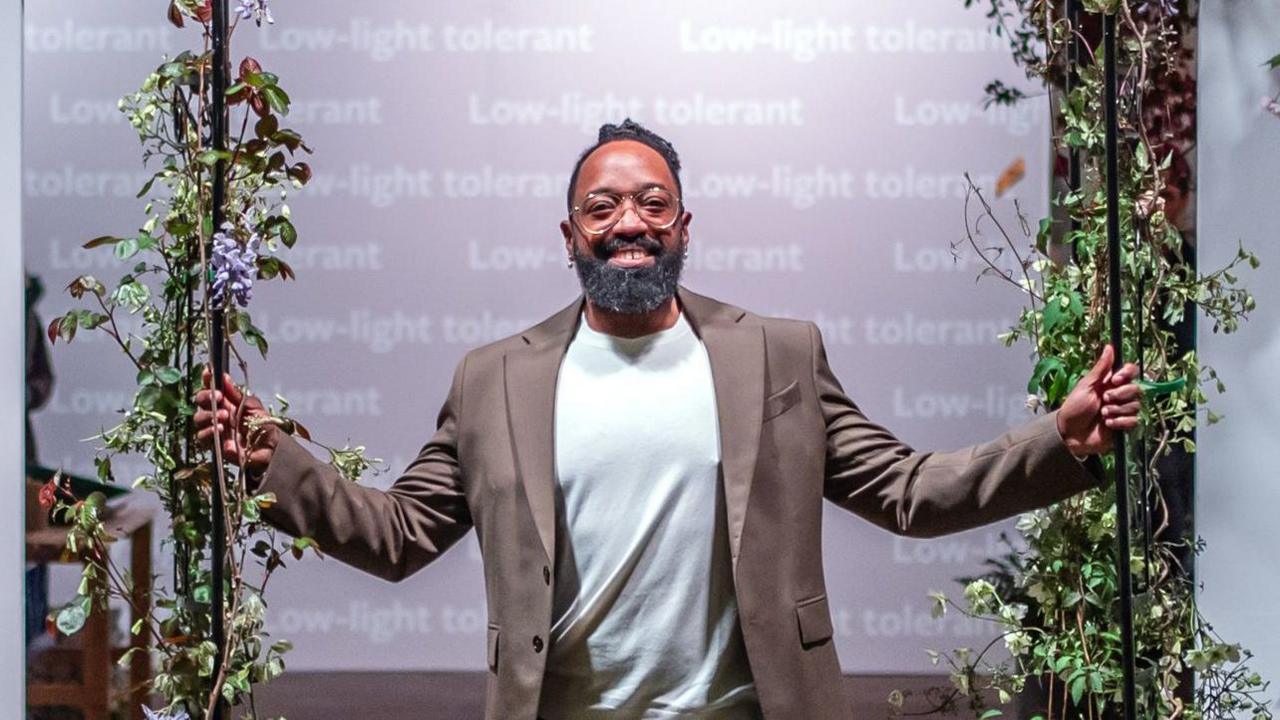
Cloud Gardener Jason Williams says people should focus on what is most likely to work
Manchester-based Jason Williams has become known as the Cloud Gardener.
Living on the 18th floor of his building, he is an expert in small space gardening, and has made it his mission to convince people renting flats that it is possible to create gardens in the sky without pots of cash.
"Figure out which direction your balcony faces because that’s going to affect your planting," Jason says.
He says there is no point wasting money on plants that are not going to survive in your space.
Despite sunflowers being his favourite plants, he does not bother on his balcony because of the wind.
"Sometimes they can snap over and that means you’ve wasted all that time and space growing that plant."
He says people should focus on what is most likely to work, so they don’t waste money, or lose their enthusiasm.
Work round your housemates
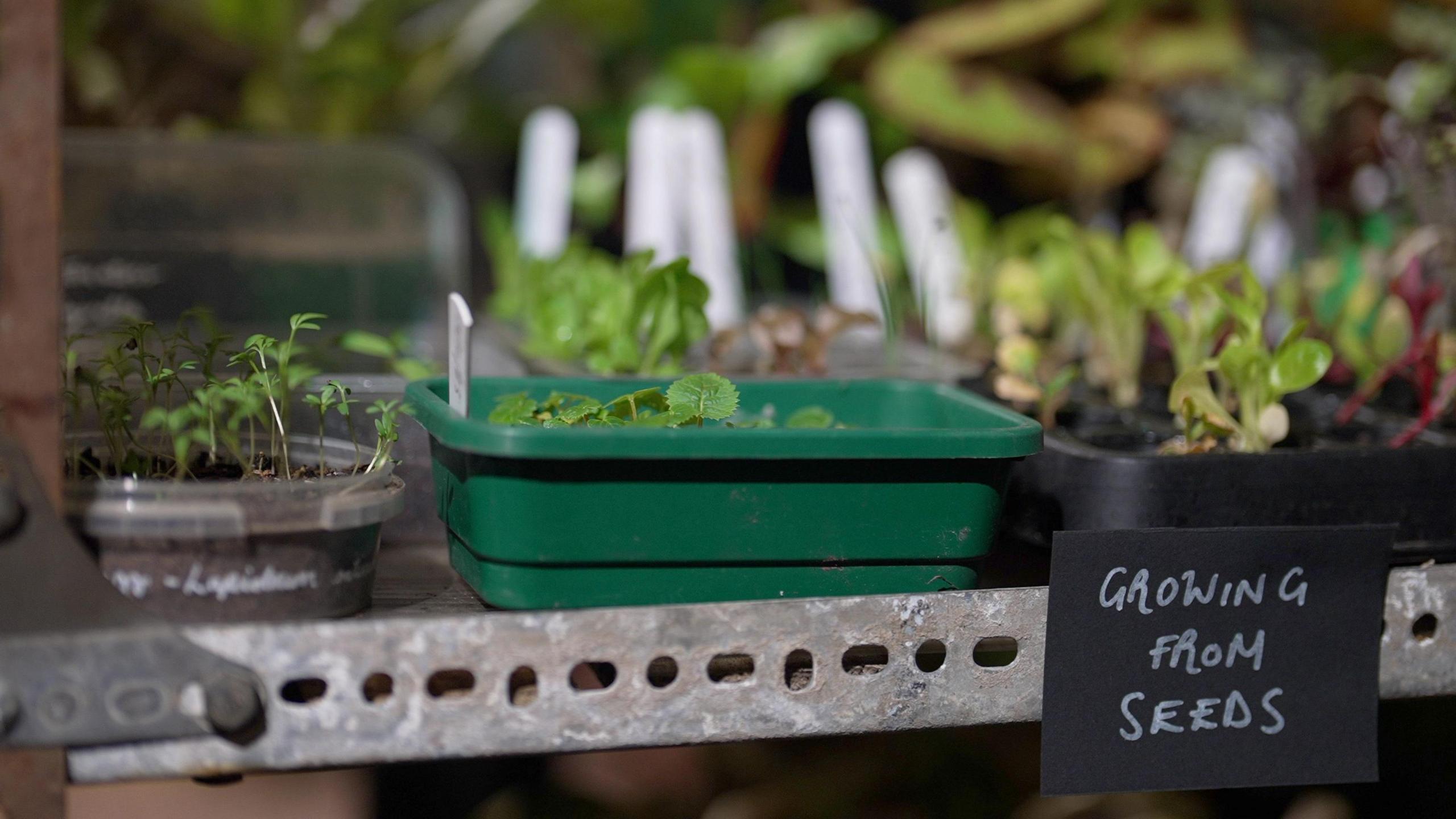
Plant and seeds swaps have been set up across the country
Another crucial consideration about gardening as a tenant is that lots of people are sharing their space with others.
"There might be two of you living in that apartment," says Jason. "One of you might have an interest in gardening, the other not."
He thinks that navigating that problem might mean not going down the cheapest route of planting seeds.
"You may have to purchase some plug plants and put them into pots to reduce the amount of mess and clutter around your apartment," he says, adding buying the small plug plants and growing them will still be cheaper than buying full-sized plants.
He says by using upcycled shelves and even open chests of drawers to house plants, everything can be moved to a new location if someone should decide to move into another home.
Use anything to grow in
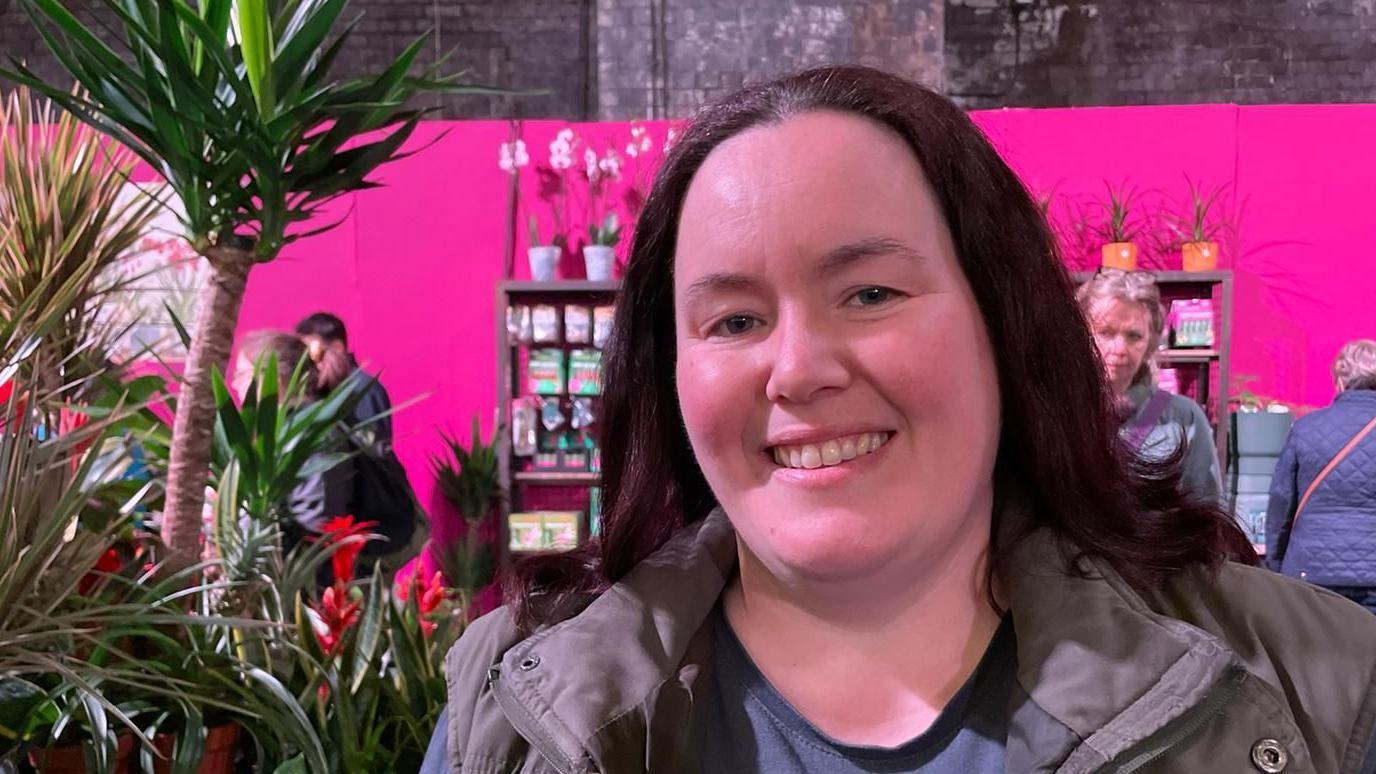
Lisa Hudson says you can collect seeds from sunflowers or marigolds to plant next year
Lisa Hudson is an expert grower for the Royal Horticultural Society (RHS) in Salford, and she agrees you can save a fortune by using any container to grow things in.
"Start small," she says. "Start on your windowsill if you’ve got one, use whatever containers you’ve got to hand."
But she warns people should "make sure they’ve got some drainage in them, because plants do not like to sit in a puddle of water".
One of the main parts of Lisa’s job is what is known as propagating, or making more plants.
And she loves the fact that people can do this for free.
At the basic level, she says, you can collect seeds from sunflowers, nasturtiums, or marigolds to plant next year.
She says lots of plants can be divided.
"Anything that’s got a decent amount of root you can quite often split.
"Mint works really well, but a lot of ornamental plants where they’ve just got a single woody stem – you’re going to kill it."
But if you cannot divide it "you can probably take a cutting of it", Lisa says.
"So that’s usually a small section of stem then you stick in a pot and get to grow roots."
And once you have got your extra plants, you can use them in your own space, or swap them for free.
'A liberation'
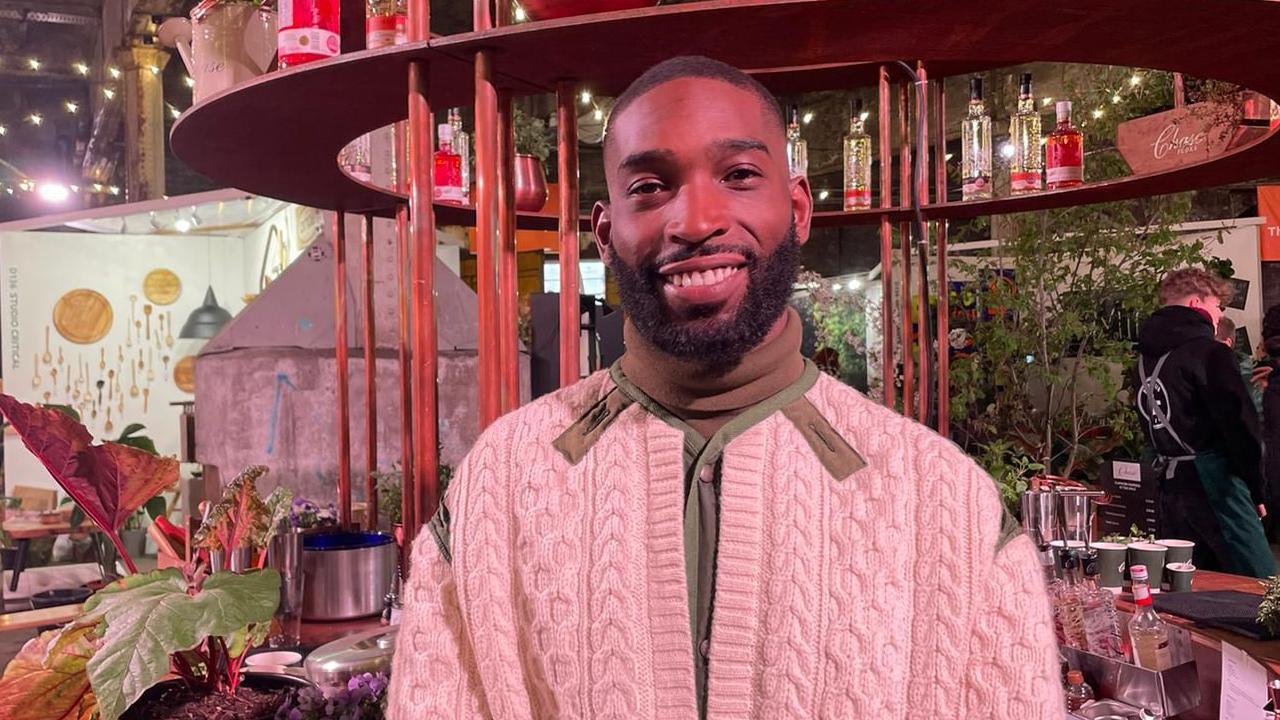
Musician and broadcaster Tinie Tempah has been supporting nature projects for urban areas
Creating a little green space can have huge benefits for nature and for people’s mental health too.
One man who has felt those benefits first hand is the rapper Tinie Tempah.
"The pressure of life and the cost of living, it can all sort of get the better of you so sometimes," he says. "So to be in a place of nature and be still, you would be surprised at how much that can do in terms of creativity."
Famous for his urban grime rap, Tinie says his early childhood was grey.
"When I was in the flat I used to look out and all I could see was essentially concrete.
"Even the playground that they had made in that council estate was like a concrete playground."
But all that changed when Tinie was 12.
His family moved house and, for the first time, he had access to a garden.
"The minute that we had our own garden space, it just felt like liberation," he says.
"It just felt like we were living in an environment that we were more able to thrive in."
Listen to the best of BBC Radio Manchester on Sounds and follow BBC Manchester on Facebook, external, X, external, and Instagram, external. You can also send story ideas to northwest.newsonline@bbc.co.uk, external
Related topics
Related stories
- Published3 April 2024
